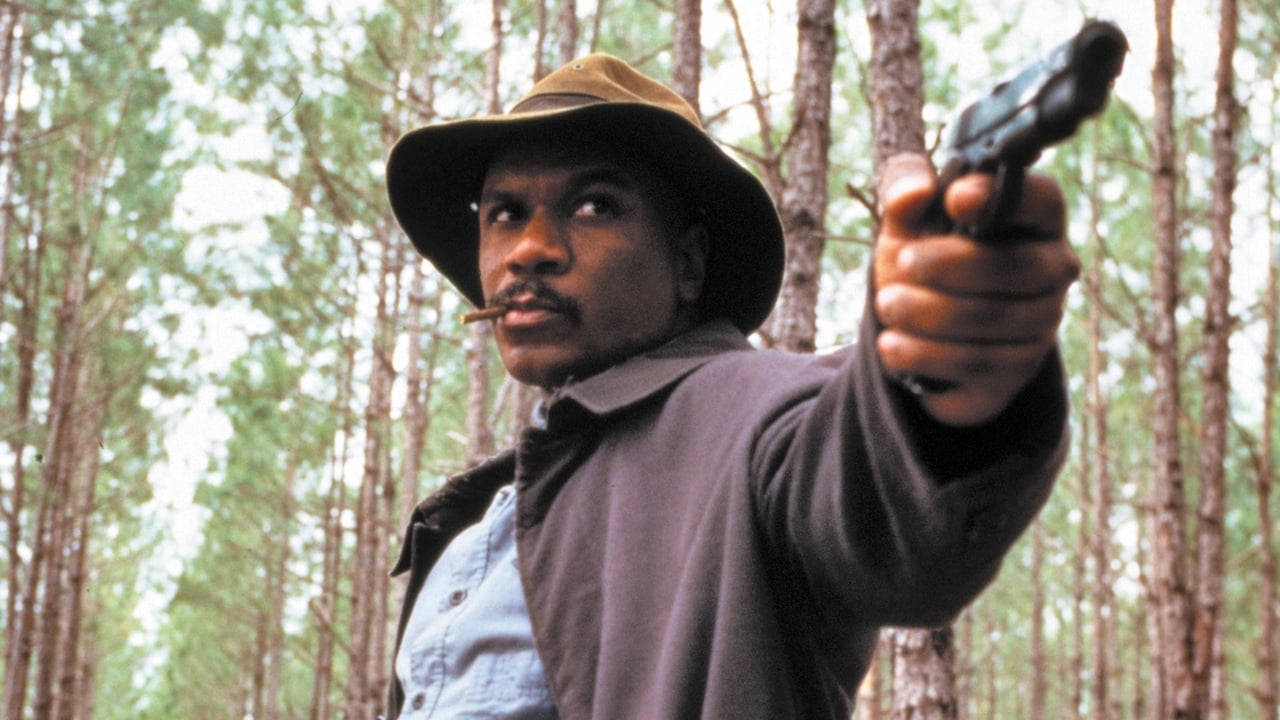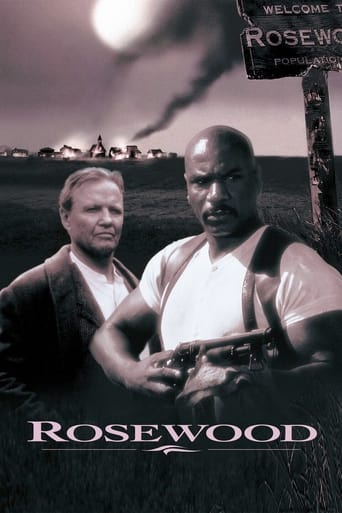

I was totally surprised at how great this film.You could feel your paranoia rise as the film went on and as you gradually learned the details of the real situation.
... View MoreIt's the kind of movie you'll want to see a second time with someone who hasn't seen it yet, to remember what it was like to watch it for the first time.
... View MoreIt's simply great fun, a winsome film and an occasionally over-the-top luxury fantasy that never flags.
... View MoreThis is a coming of age storyline that you've seen in one form or another for decades. It takes a truly unique voice to make yet another one worth watching.
... View MoreRosewood Florida, I am most familiar with the story. A sheriff was killed while making an arrest. A group of whites formed a vigilante mob and went to lynch the killer. Guns were drawn on each side. 6 black citizens were killed and 1 white. Several more were injured. That's all the deaths that occurred. No genocide, no mass graves of half the town. This film is another example of a factual event that just wasn't glamorous enough for Hollywood. So the story had to be built up, the town burned to the ground while it was actually slowly abandoned because of drought and crop failure. Bing Rhames had to create a character who never existed. Esther Rolle was brought in to provide a central character of good repute who was murdered in cold blood even though only males were killed in real life. Children and woman murdered on screen when it didn't occur in real life. Films like this make me sick, taking a tragedy and stretching it into a holocaust just to provide entertainment and not tell the truth.
... View MoreThis movie was to my liking, it had all the action oriented scenes placed together to keep the viewer interested. The characters were fairly mysterious incorporating wanderers of the town and a heavy set of anti-semetism combined with promiscuity and adulteress affairs. What happened in rosewood was a supposed intervention or clash, not a massacre but maybe a clash of culture. This movie depicts that aspect of rosewood quite well, until maybe the climax where the whole town revolts. The lynchings were due to migration, Florida was heavily under influence of migration ever since the civil war due to lack of farming. The residents did not want to be involved but in fact if rosewood hadnt occurred the whole town would have been forgotten and abandoned. They merely killed themselves because the africans reacted too harshly and triggered a devastating response. It is said they shot the officers or town residents due to infringement in privacy. The anti-semetism involved was far too extreme even for white people. Historically speaking though, the movie turned into t2 judgement day or some sort of action thriller apocalypse, the good guy was prostituting himself with the town folks...maybe he deserved to be 'caught up.' It was just not realistic or believable imho...which puts me to an odds end to where these categories truly fall under. Based on a true story or Based on true events. Authentic movies that I have seen before which portray real events quit accurately are not apocalypse now, titanic or Apollo 13 but documented based movies such as boogie nights, fire in the sky, or mobster movies with the likes of Scarface & Goodfellas where the actual events look like they could have actually played out in that fashion. If you like the latter, you'll like this movie.If the film is good its because it was for the viewer to interpret it correctly. What I think it was is that the wife with diabetes is the murderer whom got shot's wife. The murderer john d or watever is probably the guy at the end. There was probably two murderers he was chasing which he encountered before being knocked out. His wife prob died. The diabetic is probably one of the murderer's wives. Then the movie may be good..okay.
... View MoreIn 1923, a village called Rosewood consisting of somewhere around twenty to thirty black families was attacked. Many lost their homes, some lost their lives.Historians have argued about the specifics for years now. Some say the rash of attacks against whites perpetuated by blacks leading up to the Rosewood attack is insignificant because the black suspects were framed by racist whites. To others, the burning of the village and subsequent murders of at least six blacks are justified because of the considerable rise in black crime.This story had all the earmarks of becoming a memorable feature film. It had a small gathering of sympathetic characters, a hoard of evil antagonists, and most especially an extra heaping of abject tragedy.Unfortunately, the film is horrendously one-sided as it depicts nearly every white person as bloodthirsty savages bent on absolute hatred, while the black people appear as radiant beacons of righteousness. The story essentially is told from the viewpoint of the very models of propriety (the blacks) set against the fierce malevolence of humanity's abominations (the whites).It's a puerile and half-hearted attempt at framing what at it's heart is a very real and horrifying picture of cruel annihilation. There are good and bad people in every social strata, and to stereotype an entire race (even within the context of but one film) is narrow-minded and ironically racist in itself.Sure, you have Jon Voight portraying the token "good" white by trying to save many of the blacks that frequent his general store - but even he's a scumbag. He brazenly carries on with a young black girl and has a mean disposition.You also have Ving Rhames playing the ubiquitous Hollywood "badass" who aids in the defense of the village by fighting the attacking whites off with two pistols, one in each hand, channeling his best knock-off of classic John Woo action.I could forgive much of this if, in the end, we were left with an overall enjoyable film. Sadly, this piece of celluloid stinks like month old meatloaf. It's banal, derivative, and worst of all - unconditionally forgettable.
... View MoreAs horrific as these events are portrayed, you need only look at real-time life and know that by far they were a thousand times worse. Movies are so sterile in exposing the senses to the horror of real life. Close your eyes and smell the gasoline, feel the night air on your sweaty brow, smell the dirt and feel the small puff of warm air escape from the mouth of the man screaming in your face so close that you can taste his hatred. See all of these things in your minds eye, and know that somewhere close by stands a reasonable person transfixed by his/her indecision to do the thing he knows is right.These things and countless others happened and are still happening today.If you REALLY care, I dare you to stand up for what you believe to be right even if you know you'll be ridiculed or ostracized in some way. Atrocities like Rosewood happen because people like us turn a blind eye to the wrong we see and hear going on around us everyday. Not one person reading this thread can say they weren't in that mob if we just stand by and laugh at ethnic jokes or whisper comments inside our secret hearts when we're angry and don't understand. Stand up today. Stand up or just grab a torch and join the mobs of yesterday...and eventually tomorrow. I give this movie a ten, just because it dares to say these things were wrong. Injustice IS wrong and it hurts EVERYBODY.
... View More